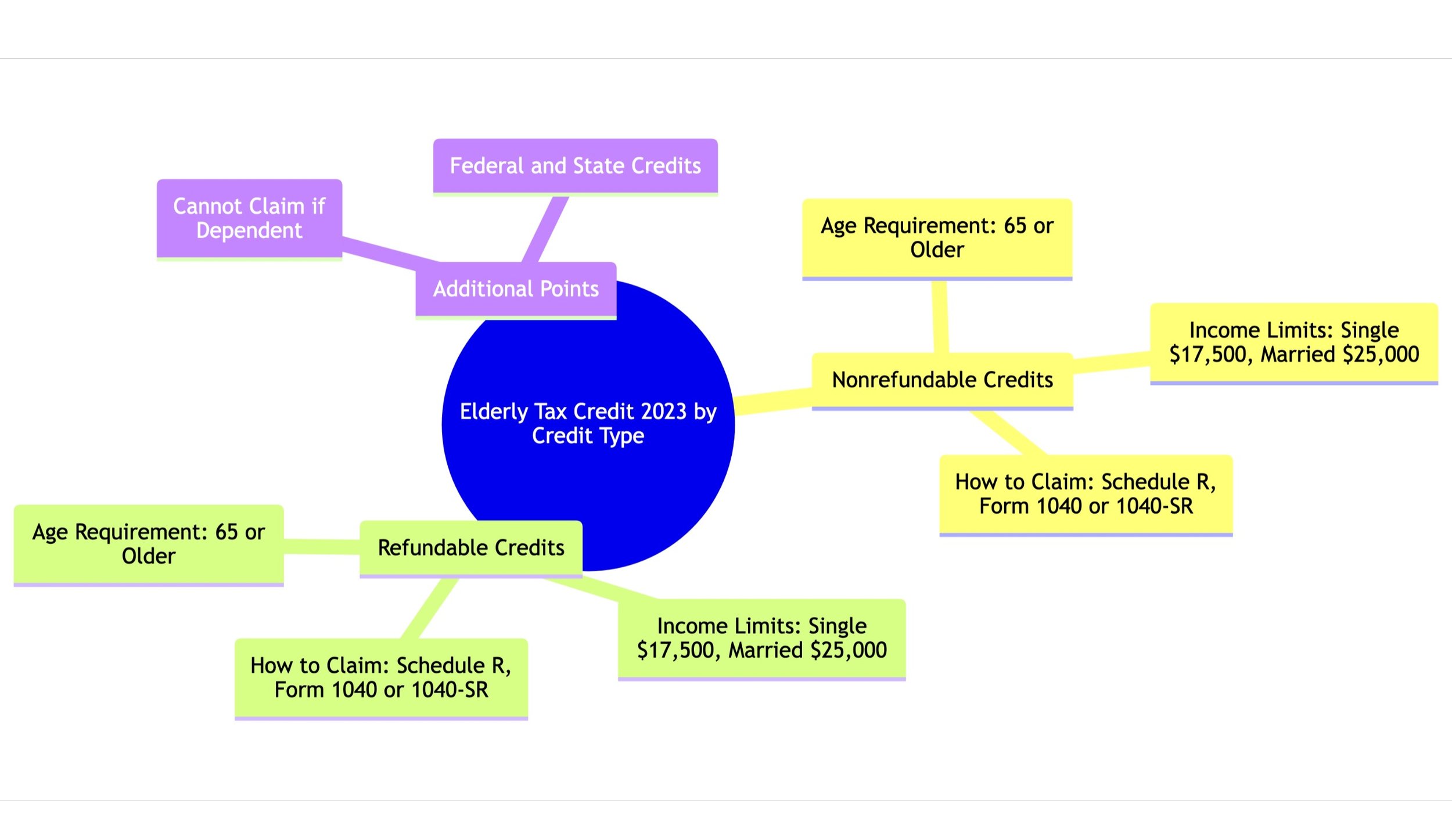The 2023 Elderly Tax Credit: A Simple Guide to Savings for Seniors
Introduction
Tax season can be overwhelming, especially for seniors. However, the Elderly Tax Credit for 2023 offers a silver lining. This article will guide you through the types of credits available, eligibility requirements, and the claiming process.
Types of Elderly Tax Credits
Nonrefundable Credits
These credits can reduce your tax liability but won't result in a refund.
Refundable Credits
Although the Elderly Tax Credit is generally nonrefundable, some states offer refundable credits for seniors.
Eligibility Criteria
Age Requirement: You or your spouse must be 65 or older.
Income Limits:
Single: $17,500
Married: $25,000
How to Claim the Credit
Gather Documentation: Keep track of your income and any nontaxable benefits.
Complete Schedule R: This is the form specifically for the Elderly Tax Credit.
Attach to Form 1040 or 1040-SR: Include Schedule R when you file your tax return.
Additional Points
Cannot Claim if Dependent: If someone else claims you as a dependent, you're ineligible.
Federal and State Credits: Some states offer additional credits for seniors.
Conclusion
The Elderly Tax Credit for 2023 is a valuable resource for seniors looking to save on their taxes. Make sure you meet the eligibility criteria and follow the correct steps to claim your credit.

